Reasons to Buy a Truck Instead of a Car
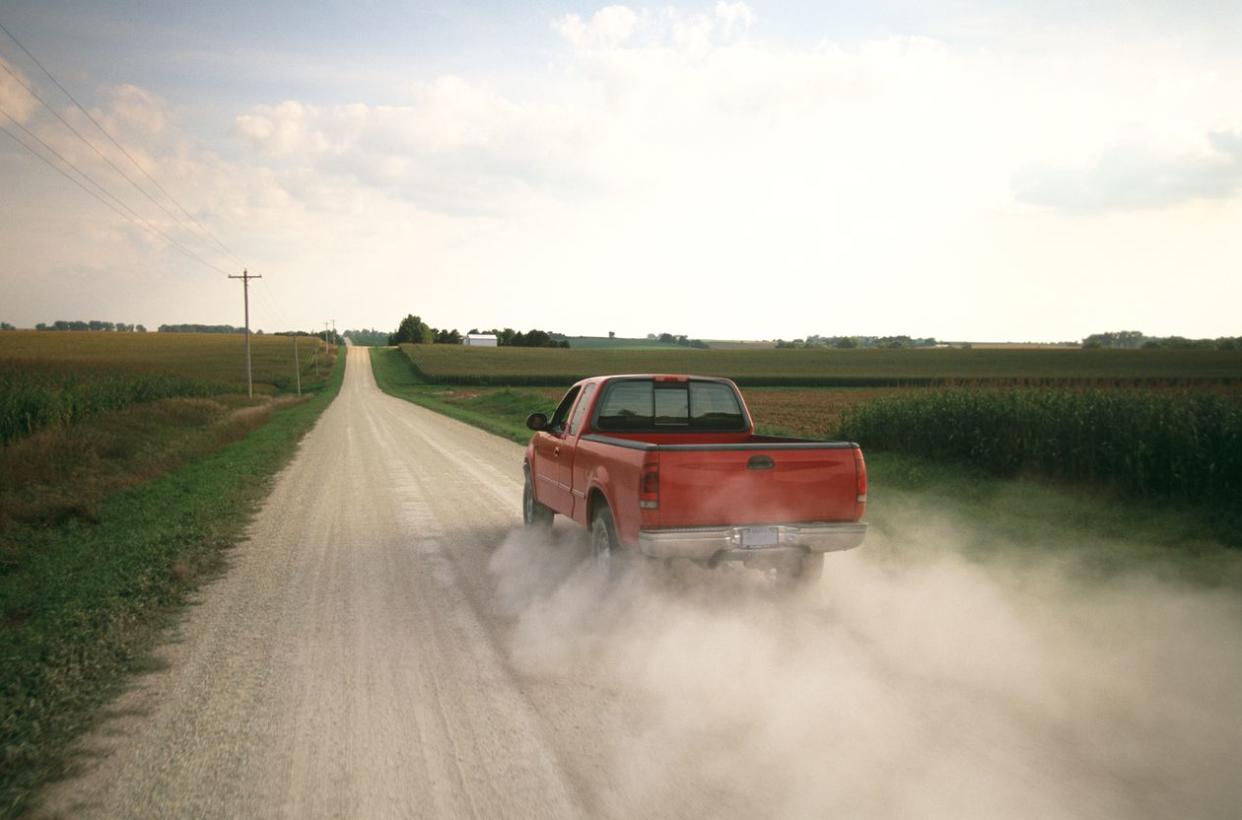
Pickup Perks
If you're in the market for a car, maybe it's not a car you need at all — maybe it's not even a crossover or an SUV. When was the last time you hashed over the benefits of owning a pickup? There are plenty of pros to consider and, unlike other classes of vehicles, no other automobile on the road can deliver the unique advantages truck people enjoy every day. If you're not sure why trucks are America's bestselling vehicles year after year and why pickups are more closely associated with U.S. automobile culture than any other vehicle, maybe it's time to give a second look to the rugged frames, open beds, and massive muscles that defined the classic pickup truck.
Related: All the Reasons You Shouldn't Buy a Truck

The Tailgate
First things first: Cars have trunks and hatchbacks. Trunks and hatchbacks are great, but there's a reason they don't name entire genres of outdoor parties after them. Much more than just the entranceway to the truck's bed, the tailgate is an idea, a state of mind, and, of course, a place to sit and dangle your legs while doing beer-commercial stuff at concerts, cookouts, and stadium parking lots.
Related: Surprising Things You Didn't Know About America's Best-Selling Vehicle
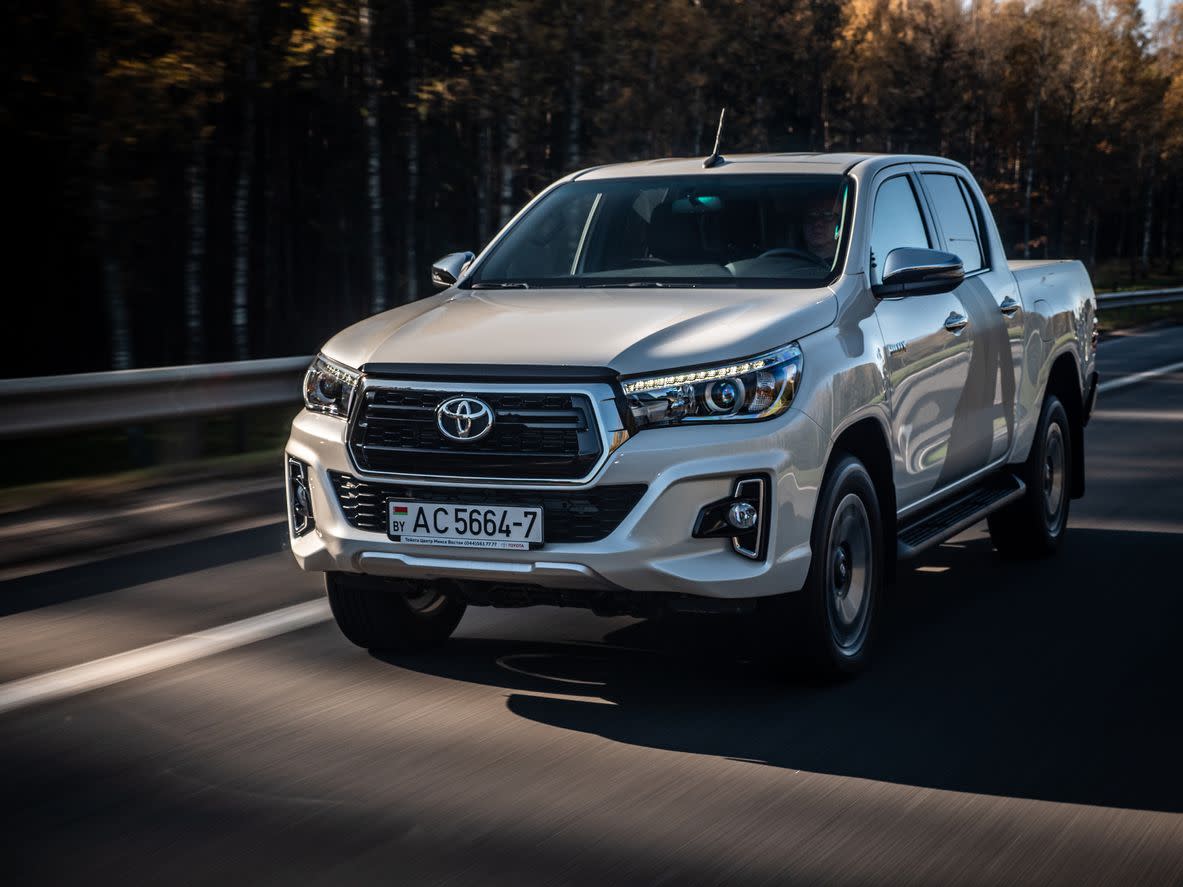
Horsepower
Most vehicles — even sports cars — don't require a ton of horsepower to drive well. But because of the nature of the jobs that trucks are expected to perform, large herds of ponies are part of the deal even on modestly muscled trucks. Even the Ford Ranger and Honda Ridgeline, for example, start at 270 and 280 horsepower. While the combined number of available hooves isn't everything, horsepower remains the single most important metric in measuring a vehicle's ability to perform.
Related: The Most Over-the-Top Trucks You Can Buy
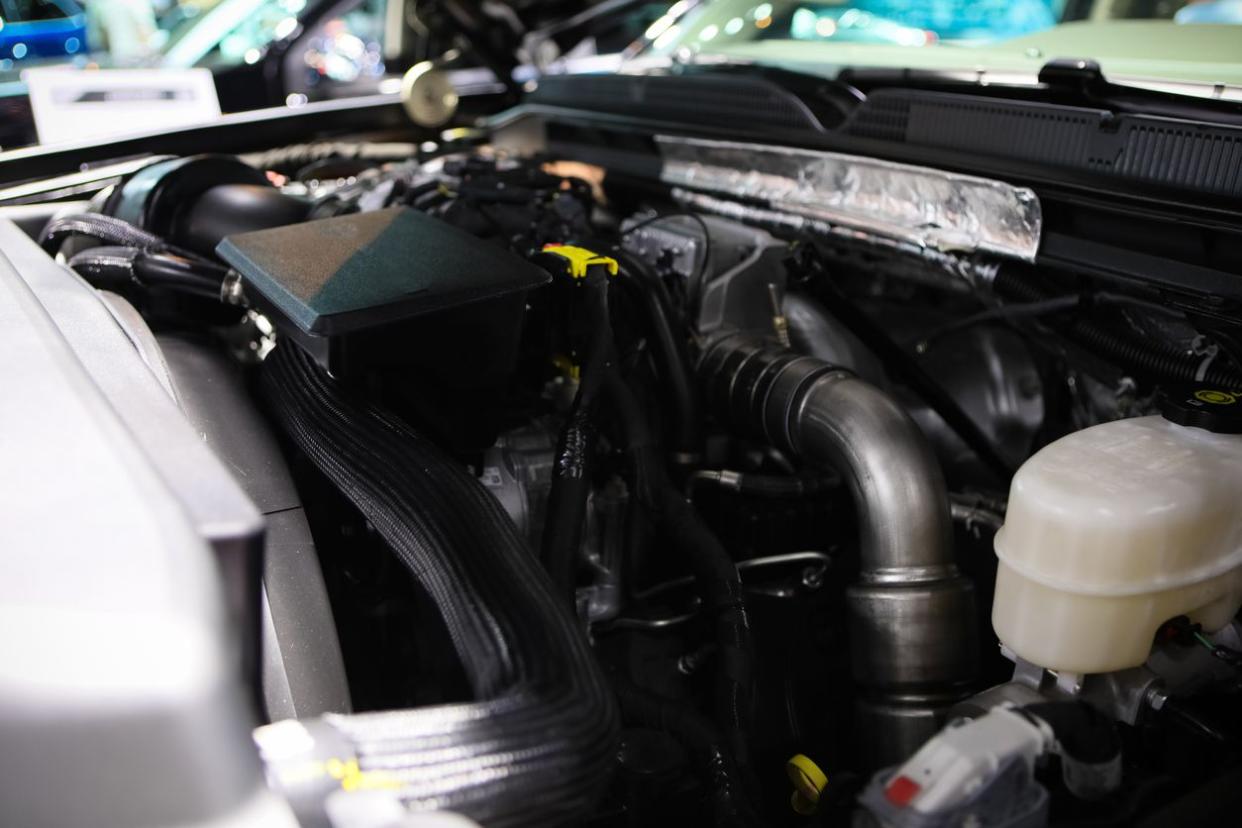
Torque
Compared with cars, big truck engines generate far more torque, a twisting power used to turn the crankshaft, which is connected to the transmissions where vehicles convert torque into usable power. Horsepower, which is delivered at higher RPM levels, is great for highway passing; the availability of low-end torque, however, is what separates car from truck and what makes the pickup America's workhorse.
Related: 50 Most Popular Cars of the Past 50 Years
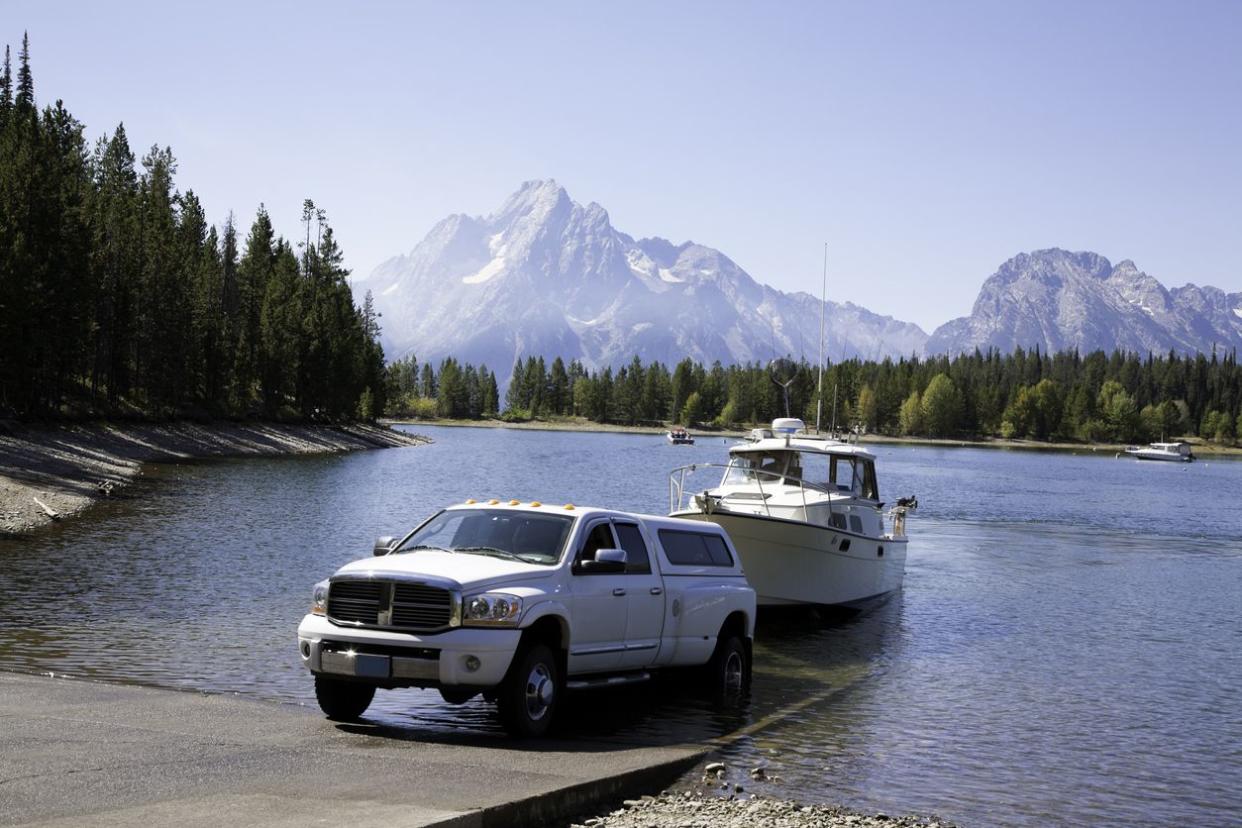
Towing Capacity
You know that more powerful engines generate more horsepower, which lets you accelerate at speed when RPM levels are high. If you're not sure why you should care about low-end torque, try pulling something heavy behind a car that doesn't have much. Then try pulling something heavy up a hill. Do the exact same thing with a truck and you'll notice that pulling things is much easier, smoother, and less taxing than it is with a car or standard SUV. That's because all that torque dramatically increases a truck's towing capacity, which, more than anything else, is the measure of a great pickup. Above all else, towing capacity is why truck owners make sacrifices in areas such as fuel economy. Plenty of cars and SUVs come with hitches, but if you tow frequently, you need a truck — the most powerful pickups are tugboats on wheels that can tow double their own weight.
Related: 32 Most Reliable Trucks of All Time

Payload Capacity
After towing capacity, the other thing that draws people to trucks is the ability to haul mountains of stuff. You can fit your suitcases and hockey sticks and even your kayak into or on your crossover; trucks measure their payload capacities in fractions of tons. In fact, those numbers your favorite brands tack onto the model names of their most popular trucks are modern payload designations: Ram and GM's 1500, 2500, and 3500, and Ford's 150, 250, and 350 are ways to classify pickups in terms of size, brawn, and capability. Originally, the three classifications that most pickups fell into were half-ton, three-quarter-ton, and one-ton. That wasn't their weight, it was how much they could carry — payload capacity is so important that trucks are literally named after theirs.
Related: America's Most Loved Trucks

You Can Haul Stuff You Can't Fit in a Car
The limitations of that sedan with the foldable seats or "highly versatile" crossover become evident quickly when you're trying to move 6x6 lumber — or 4x4s or even 2x4s of any length. The same goes for chaise lounges, mattresses, and drywall panels. The point is, you don't have to be a contractor to justify buying a truck. Lots of people move lots of stuff that's beyond the scope of a car all the time. Anyone who buys a Christmas tree will be happy to own a truck at least once a year.
Related: 29 Classic Station Wagons We Miss From Childhood

You Can Haul Stuff That Would Destroy Your Sedan
Even if it fits, anything dirty or covered in splinters or anything that can gouge or tear is bad news for the inside of cars and SUVs. That includes their leather, upholstery, carpeting, vinyl, and resale value. Here, too, Christmas trees come to mind, but the hauling superiority of a truck is much more total than that. You could probably fill up the back of your car with mulch or sand for a yard project — as long as you never plan on using that car again. For a pickup, all that and much more is just a day at the beach (with tailgating).
Related: 50 of the Biggest Cars Ever Made
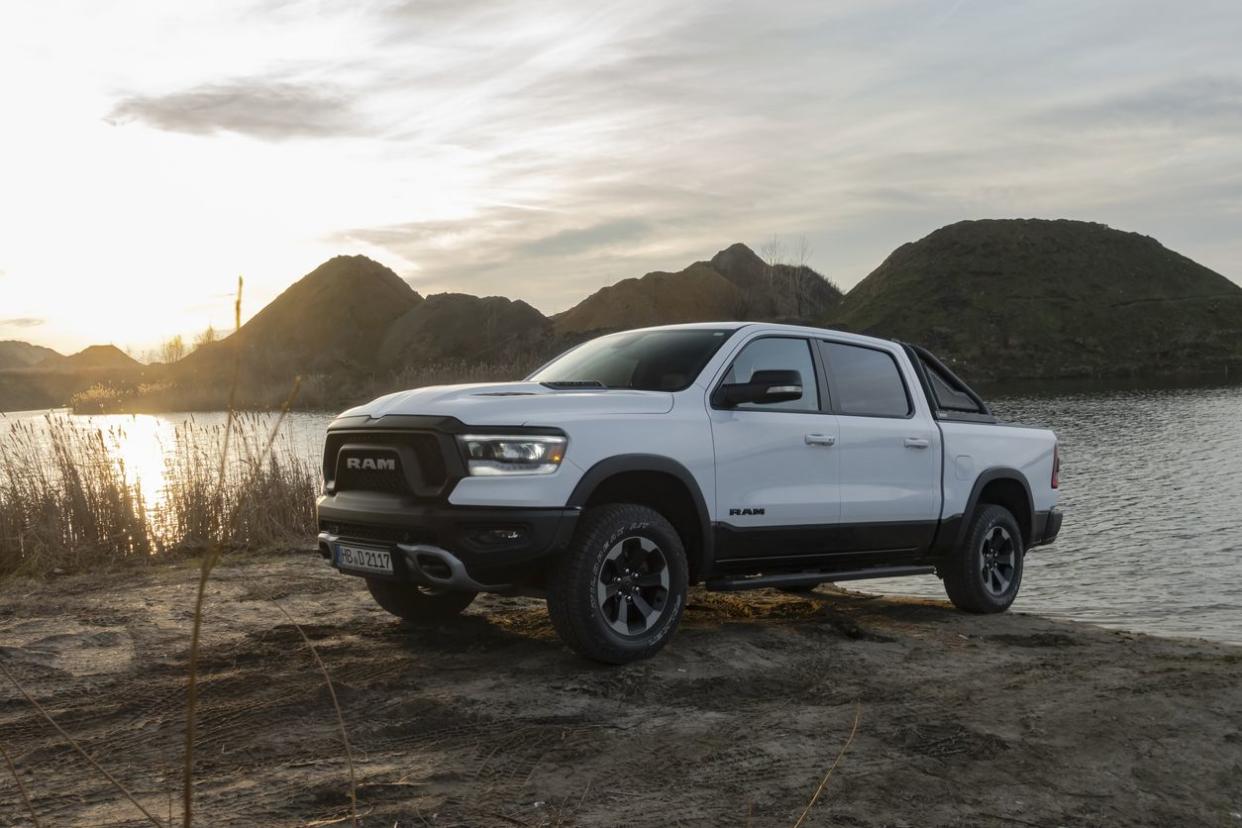
Good Things Now Come in Much Smaller Packages
Truck makers are now squeezing all that torque and horsepower and all that towing and payload capacity into much smaller engines. Until recently, full-size trucks came with V-8s, period. V-6 engines — turbocharged V-6s, especially — improved so much, however, that two fewer cylinders soon became possible without skimping on performance. The truck industry's shrinking act didn't stop there. In 2018, GM announced something that would have been ridiculed as impossible just a few short years before — a four-cylinder engine as an option in a full-size Chevy Silverado. If you've avoided trucks because of big, gas-guzzling engines and lousy fuel economy, the compromise you've always been looking for might already be here. (If you resent the downsizing, on the other hand, don't worry. Small truck engines are still experimental outliers and anyone who wants to go big certainly can. Try the Ram 3500 Cummins Turbo Diesel 16 engine on for size. It's good for 420 horsepower, 1,075 pound-feet of torque, a 6,570-pound payload capacity, and an astonishing 37,100-pound towing capacity.)
Related: 12 Gas Guzzlers We're Ashamed to Admit We Still Want
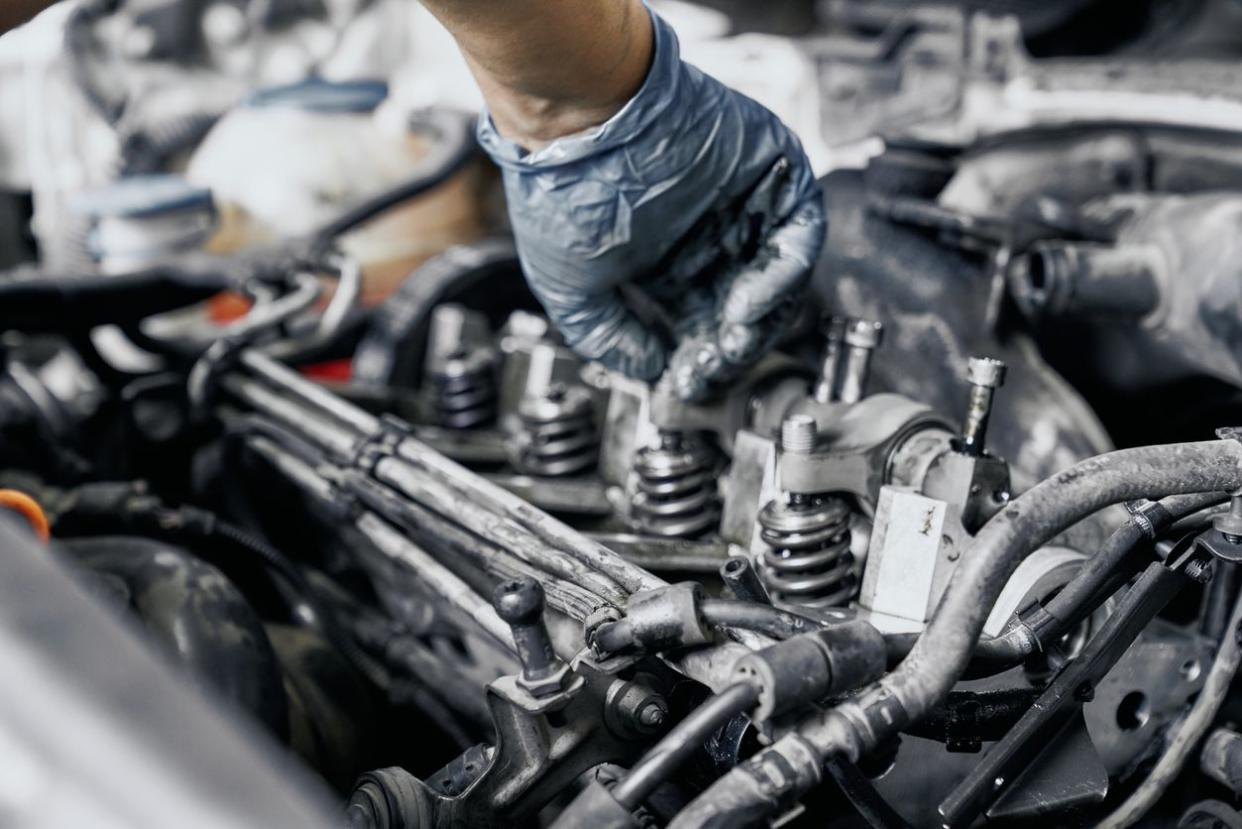
There Are Awesome Diesel Options
A few automakers make a handful of cars and SUVs available in diesel. The vast majority of diesel engines, however, are found under the hoods of pickups. Diesel packs more power per unit of fuel, gets better fuel economy, burns cleaner than gas, and delivers higher doses of torque.
Related: 12 Ways to Fill Up for Less at the Gas Station
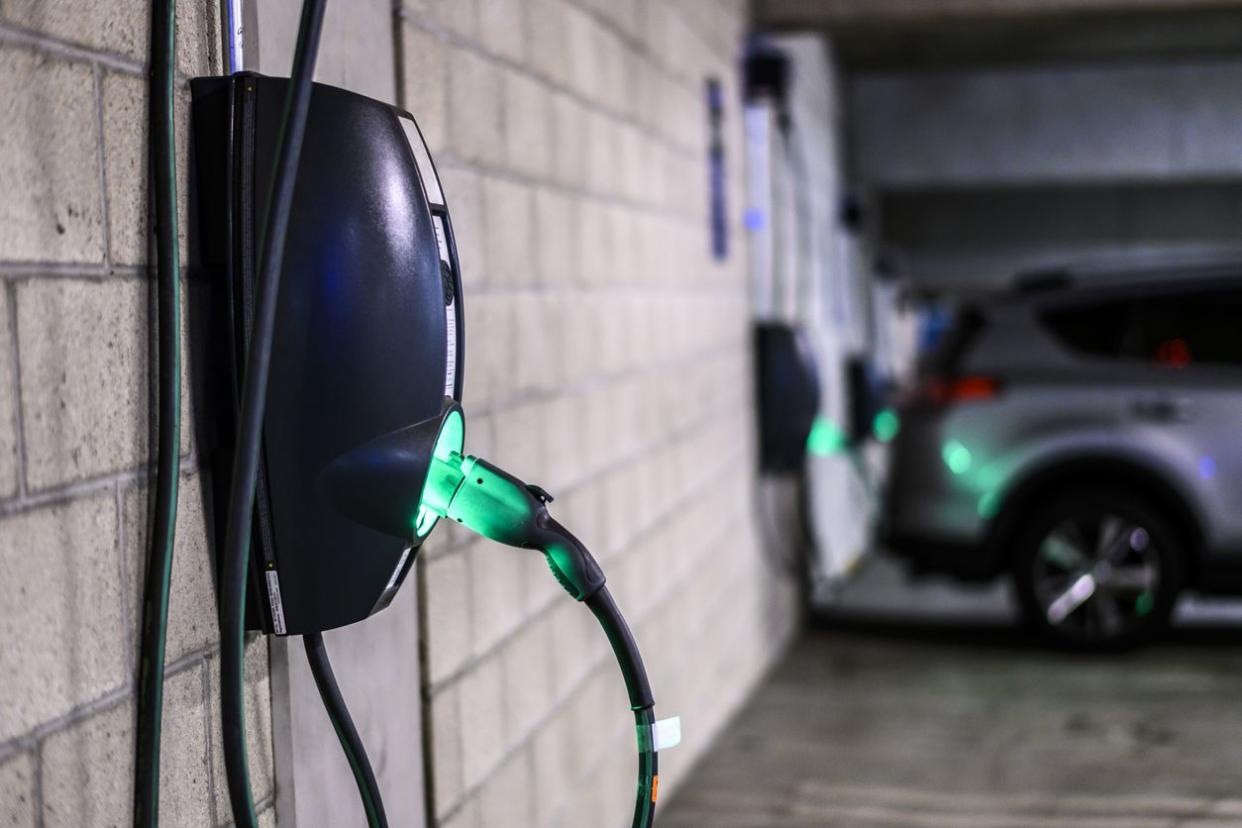
Soon, You Won't Need an Engine at All
Among the latest fully electric pickups is the Ford F-150, a battery-operated version of the most popular vehicle in America, which will deliver more torque, more horsepower, and faster acceleration than any gas-burning F-150 on the market. Hummer, Chevy, and less-celebrated brands such as Bollinger, Rivian, and Lordstown also either have brought or will soon be bringing electric trucks to the market. If the notoriously poor fuel economy of trucks has kept you sedan-bound, your time to break the chains is near.
Related: Every Electric Truck and SUV on the Market — and More Expected Soon

Truck Drivers Are High and Mighty
Trucks layouts have high seating positions, which allows pickup drivers to tower above all those sad little motorists slouching behind the wheels of their sedans, hatchbacks, and SUVs. The tall vantage point offers superior road vision, which contributes to safety by giving the driver a commanding field of view. Trucks offer the ability to see problems several car lengths ahead before those problems get big in the windshield.
Related: Why Ford Pickup Drivers Wouldn't Be Caught Dead in a Chevy
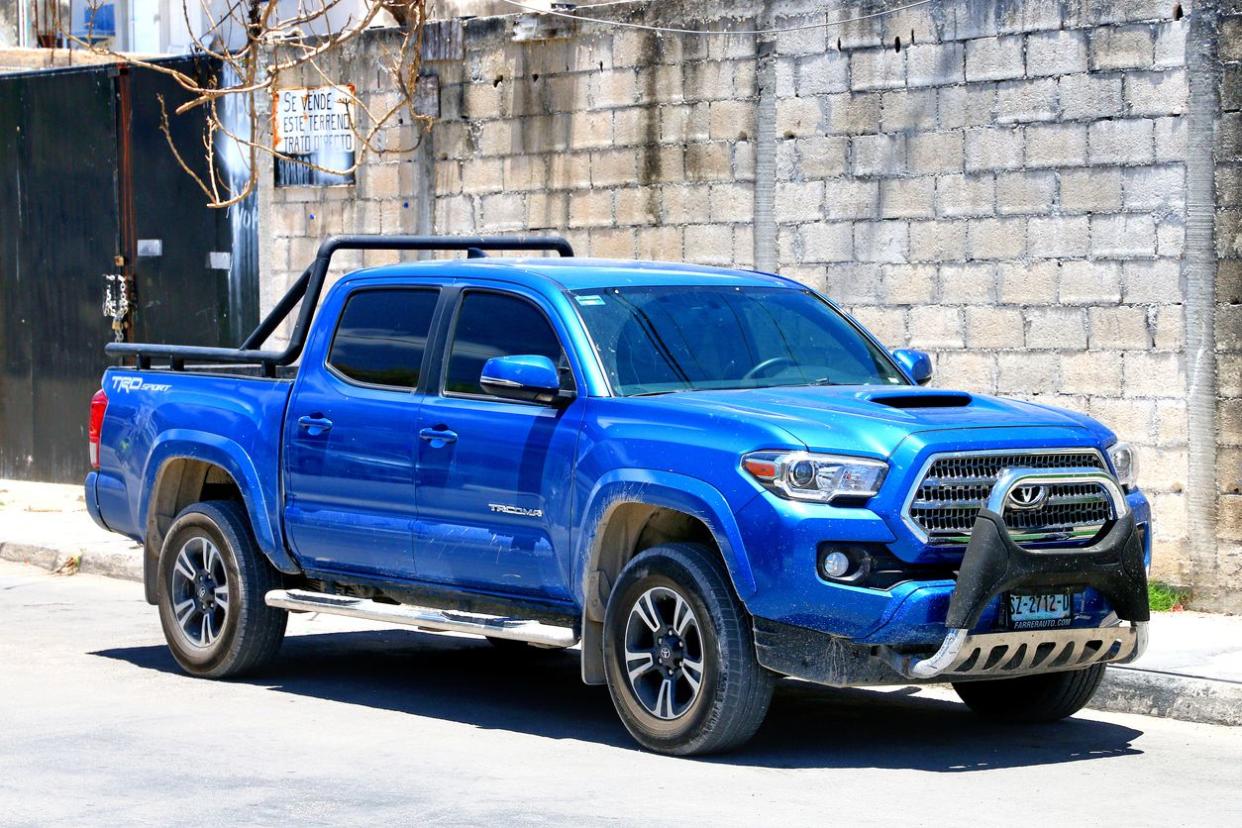
You Can Make a Truck Your Own
Anyone can slap a bumper sticker on a car — or even a spoiler, snazzy lights, or window tints, for that matter. But in the annals of personalized automobiles, there is no vehicle as customizable as a pickup. The bed alone can be outfitted with a tonneau cover, bed liner, toolbox, headache rack, or canopy. Then there's the option of adding running boards, tailgate steps, towing mirrors, sidesteps, big, giant wheels, and, of course, mudflaps.
Related: Cool Gifts for People Who Love Cars
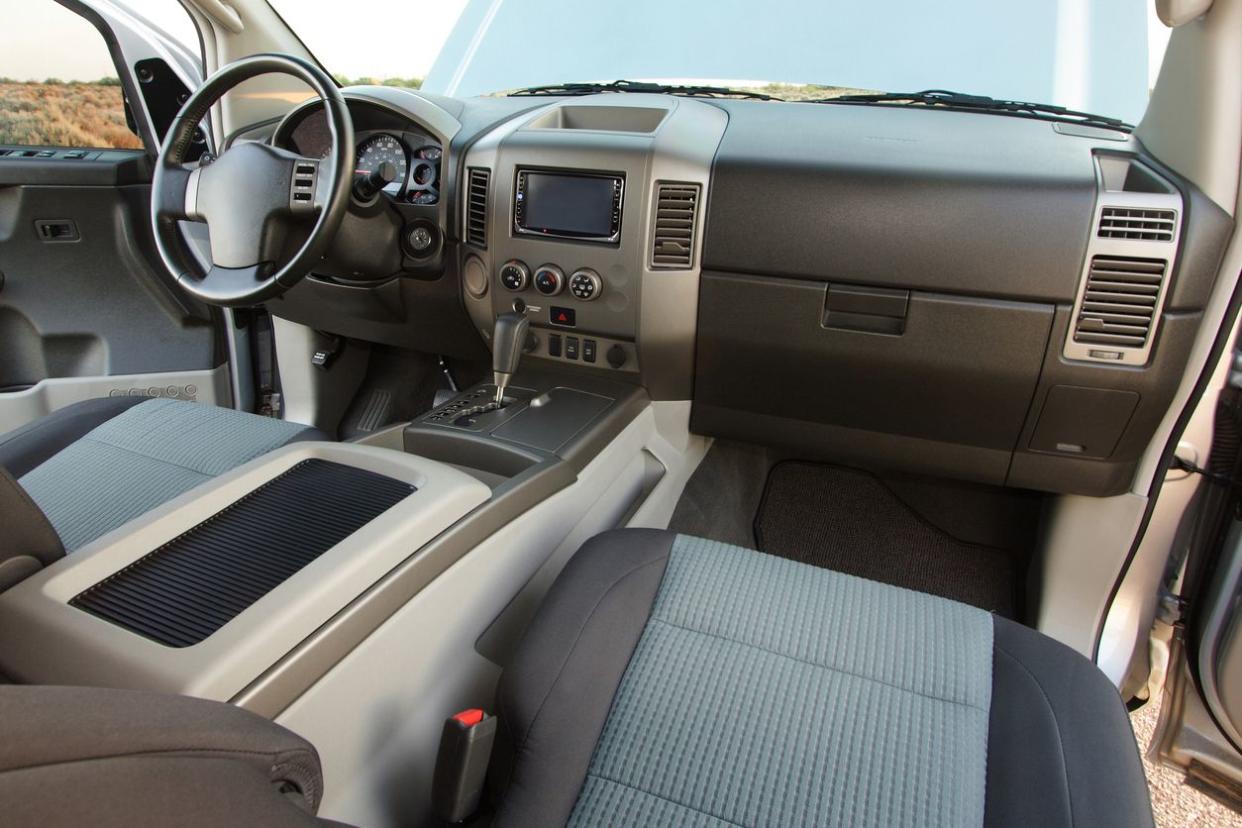
Today's Trucks Drive Like Cars
Pickups were always a tradeoff. They delivered power, performance, muscle, and reliability, but they were terrible on gas, their interiors were spartan, the ride was bouncy and loud, and creature comforts were few. That has all changed. Today's trucks are as cushy as cars — the upper trim levels of pickups from most major manufacturers are as posh and upscale as those found in luxury SUVs. Modern trucks offer smooth rides on sophisticated suspensions, their cabins are quiet, and they're outfitted with all the tech, infotainment, and driver-assist features you'd expect from a new car or SUV.
Related: The Most Popular Trucks in America
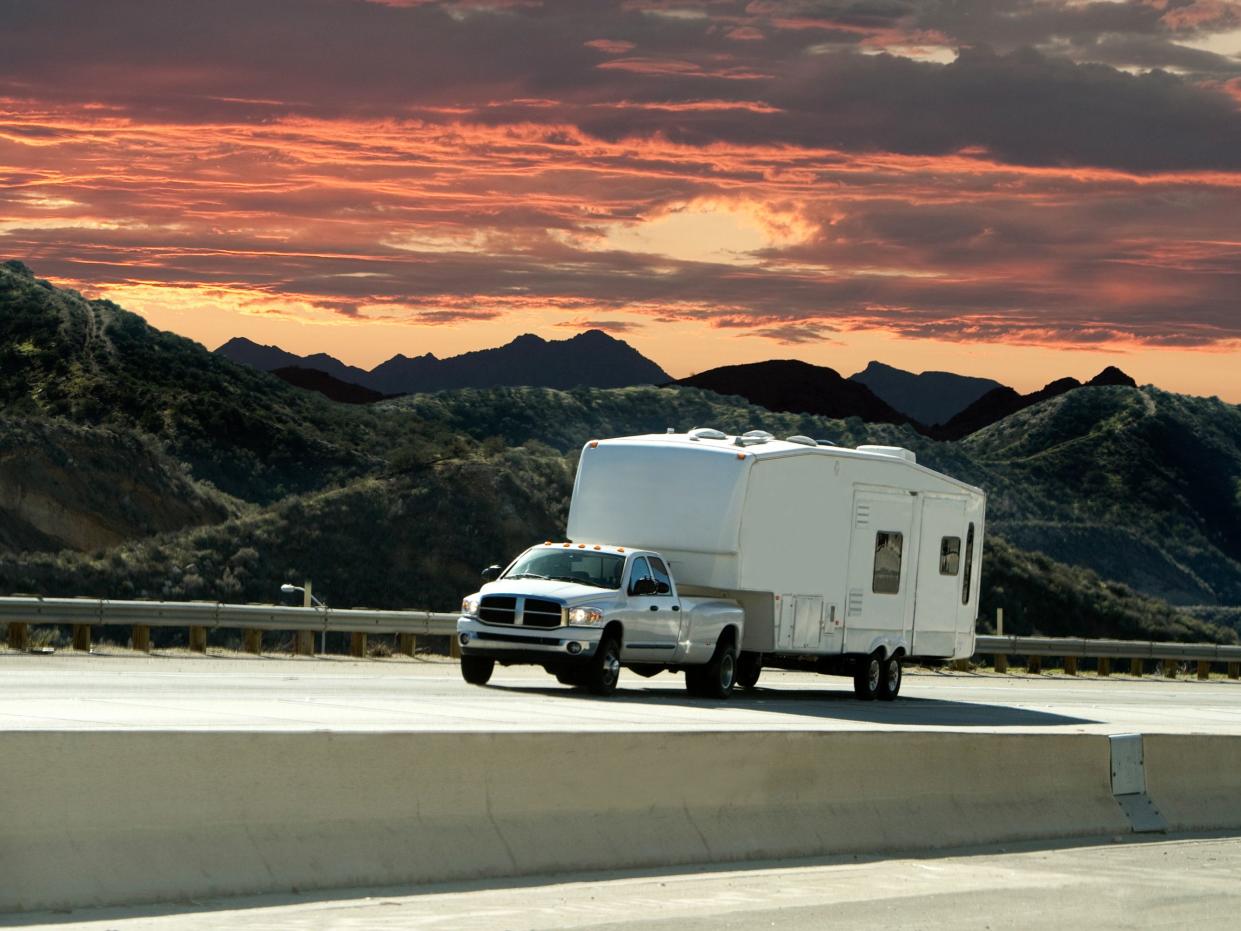
Two Words: Truck Campers
If you have a midsize or full-size pickup, you can, of course, tow an RV — what, after all, is all that torque for? But there's also another option that's unique to trucks that no car or SUV with all the torque and towing power in the world could ever hope to match. If you have a truck, you can travel in a truck camper. Instead of pulling an RV, you can carry it. Your pickup is now a house on wheels.
Related: Affordable Camper Alternatives for Escaping the Crowds

